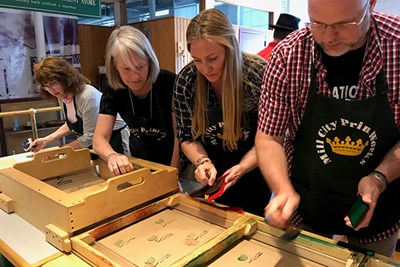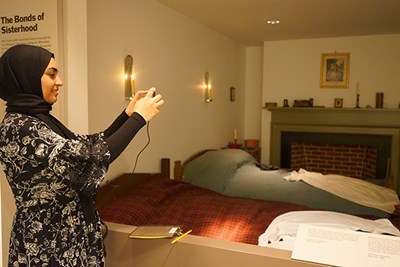Professors Link Global and Local Teaching and Learning
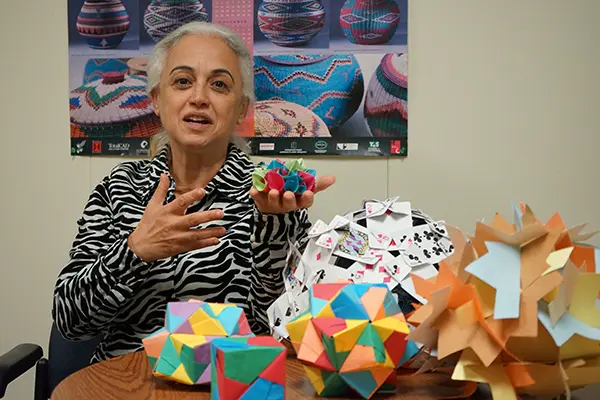 Image by K. Webster
Image by K. Webster
11/02/2018
By Katharine Webster
The world is coming to the College of Education through global teacher training programs, visiting scholars and a cluster of new hires.
This fall, three new faculty members with global research and education experience arrived on campus to enhance the college’s mission: training students to educate children from a wide range of ethnic and cultural backgrounds.
They join existing faculty with global expertise, from teaching English as a second language to differing approaches to STEM education. International and cross-cultural experiences are especially important for undergraduate education students who do their student teaching in Lowell, where many children are from immigrant and refugee families, as well as for graduate students who teach or lead schools in districts where diversity is growing, says Dean Eleanor Abrams.
“We want our students to learn best teaching practices from all around the globe,” Abrams says. “We also want to ensure we have a social justice perspective and a global perspective in all our programs.”
This fall’s new faces include Sharon Subreenduth, the college’s first-ever associate dean; Assoc. Prof. Iman Chahine, a mathematics and culture expert; and Asst. Prof. Robai Werunga, whose research involves early intervention for students with or at risk of being diagnosed with academic and behavioral disabilities.
Subreenduth, who grew up in South Africa before immigrating to the United States, researches gender equity and social justice in education. Even before she arrived on campus in August, she worked with Prof. A.J. Angulo to win a new State Department grant to bring international teachers of English to Lowell and train them to incorporate critical thinking skills into their English classes.
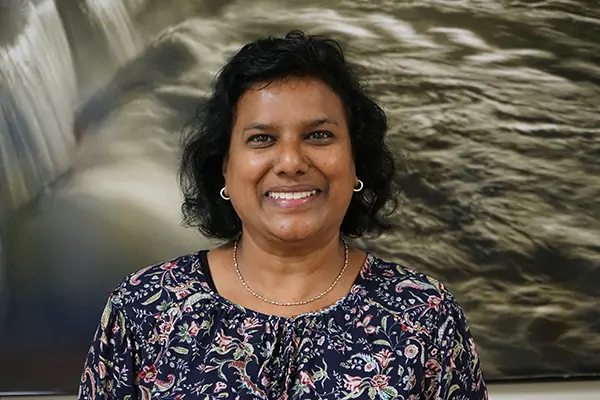 Image by K. Webster
Image by K. Webster
Abrams says the benefits of teacher exchanges go both ways, because college faculty are building a network of international educators who can collaborate with UMass Lowell students and faculty, whether through classroom video links or on research.
In just a few short months, Subreenduth has worked with faculty to submit grants with an international focus, including one with Assoc. Prof. Phitsamay Uy for a cultural exchange of youth leaders from the United Kingdom and one to support language teaching in Brazil with multiple faculty and community partners.
Subreenduth travelled to Uruguay in October to lead regional teacher development workshops on gender equity in education and deliver the keynote address at the Ministry of Education’s languages conference. She loves working with international educators.
“That’s my soul food,” she says.
Subreenduth is also expected to spearhead efforts to diversify the student body, especially in the undergraduate education major. Nationally and locally, white women comprise the majority of those pursuing careers in teaching, but “minorities” are now the majority of children in the nation’s public schools, according to the Pew Research Center. And a growing number of students do not speak English at home.
“We also want to help our more traditional students understand better how to teach in culturally diverse classrooms and schools,” Subreenduth says. “’Global’ is not only there; it is here. Diversity is more than race and ethnicity; it’s also about socioeconomic status and gender and the intersection of all these identities.”
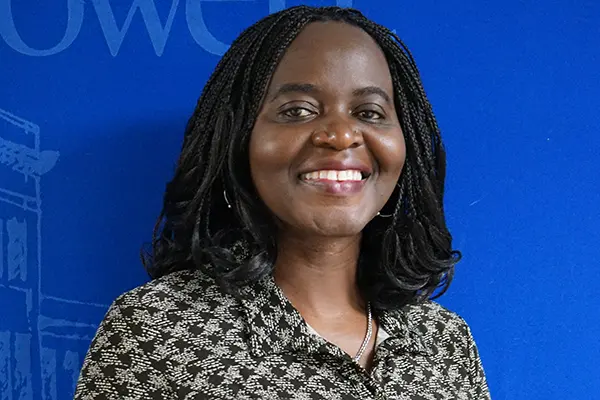 Image by K. Webster
Image by K. Webster
Chahine, who grew up in Lebanon, is an ethnomathematician whose work focuses on the intersection of mathematics and culture. She researches geometric patterns in indigenous weaving, beadwork, basket-making, knitting, crochet, Ndebele murals and Zulu love letters to understand how people with no formal Western math education understand and use complex mathematical concepts. She hopes to start a study abroad program for undergraduate education students.
“I love talking to students about how mathematics is embodied in physical objects and in cultural practices – for example, the mapping of kinship relationships,” she says. “Thinking is in the hands. These objects and practices give us an insight into the nature of mathematical knowledge.”
Werunga grew up in Kenya, where she earned a college degree in teaching religion and Swahili before coming to the United States and pursuing advanced degrees in special education. Examining cultural factors that lead schools to overdiagnose or underdiagnose immigrant and minority students with learning and behavioral disabilities is a major part of her scholarly agenda.
“The cultural piece is a really big part of it, especially in overdiagnosis of behavioral issues,” she says. “For example, often schools or classrooms will have rules like ‘Be respectful.’ In a lot of cultures, including mine, eye contact with an adult is not respectful, especially when that adult is correcting your behavior. But a lack of eye contact can be construed by American teachers as disrespectful.”


